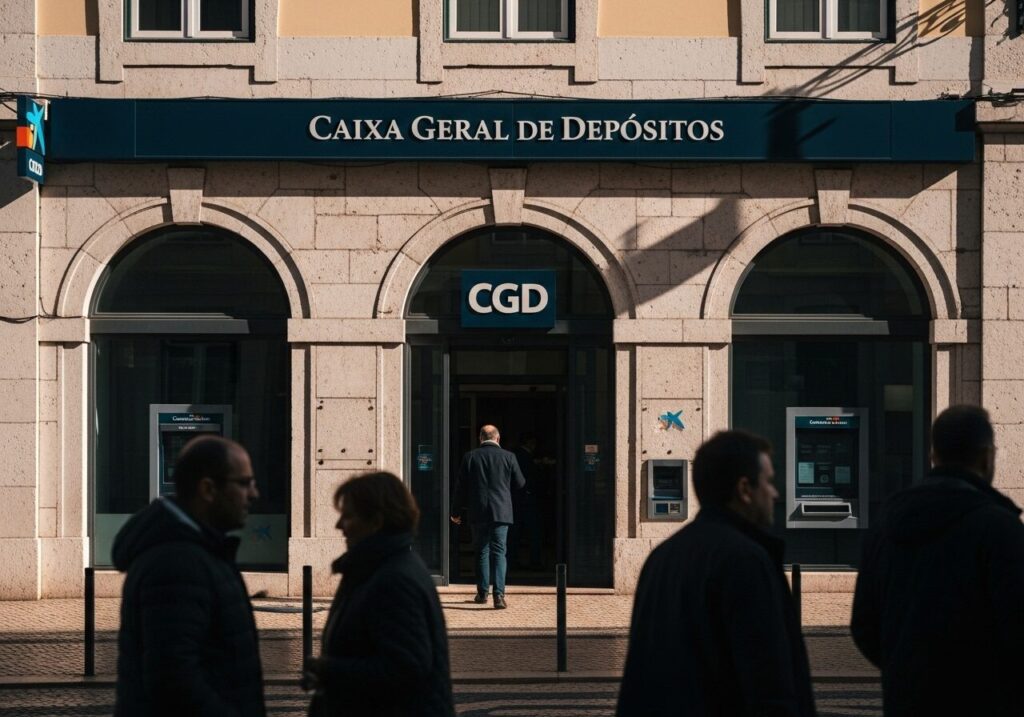How to beat the residency catch-22 and get your IBAN.
Introduction
You followed the advice, gathered your documents, and walked into a Portuguese bank to open an account. The manager politely informs you that without a Portuguese residence card, they cannot help you. This is the new reality for many freelancers and remote workers, a bureaucratic trap where you need an account for your residency application, but banks demand residency to open the account.
This rejection is not your fault. It is a systemic shift. But there is a clear path to avoid it. This guide provides the exact sequence to get a Portuguese IBAN, starting with the right banks and avoiding the ones that will waste your time.
The non-negotiable first step: get your NIF
Before you even think about which bank to choose, you must have a Portuguese tax identification number, the número de identificação fiscal (NIF). It is a nine-digit number issued by the tax authority (Autoridade Tributária e Aduaneira) and is the foundation of all financial activity in Portugal.
No bank, traditional or digital, will begin an application without a valid NIF certificate.
You can and should acquire your NIF remotely through a legal representative before you arrive in Portugal. Completing this step first saves you weeks of delays on the ground and positions you for a successful bank application from day one.
The residency trap: why most banks will reject you
Since 2024, most private banks in Portugal have tightened their rules. Banks like ActivoBank, Millennium BCP, and Santander now frequently require a valid Portuguese residence permit (Autorização de Residência) from non-EU citizens.
This policy creates the “catch-22” that stalls so many relocations. The immigration agency (AIMA) often requires a Portuguese bank account to prove you have sufficient funds for residency. This makes your choice of bank the most critical decision in your first weeks.
The winning path: two banks that reliably onboard non-residents
While many banks have become restrictive, a few remain accessible to new arrivals. As of 2025, two banks are the clear front-runners for non-EU citizens who do not yet have a residence card.
1. Caixa Geral de Depósitos (CGD)
CGD is a state-owned bank and is widely reported as the most accessible option for non-residents. Field reports show a 78% approval rate for non-resident applicants at CGD, making it the highest probability target. An in-person branch visit is required.
2. Banco Montepio
Montepio is another traditional bank known for its willingness to work with non-residents. Having a remote work or employment contract to show as proof of income significantly improves your chances here. Like CGD, you must apply in person.
By prioritizing these two banks, you bypass the primary reason for rejection and avoid wasting time at branches with strict internal policies against non-resident clients.
Universal requirements checklist
Having your documents prepared is the most effective way to ensure a smooth process. Arrive at the bank with a physical folder containing the following:
- Portuguese NIF Certificate: The official PDF document from the tax authority.
- Valid Identification: Your passport with at least six months of validity.
- Proof of Address: A recent utility bill or bank statement (less than 3 months old) from your home country. It must clearly show your full name and address.
- Proof of Income: A signed employment contract, recent payslips, or your declaration of starting business activity (declaração de início de atividade) if you are registered as a freelancer in Portugal.
- Initial Deposit: Be prepared with €100 to €300 in cash to activate the account.
While not always mandatory, bringing your visa sticker (if applicable) or your AIMA appointment confirmation email can help demonstrate your legal status in the country.
Fintech accounts (Wise, Revolut) are a bridge, not a solution
Digital providers like Wise and Revolut are excellent tools. They offer fast, remote account opening and now provide Portuguese (PT) IBANs. They are perfect for managing cash flow in your first few weeks.
However, they are not a substitute for a traditional Portuguese bank account.
This is due to a practical issue known as “IBAN discrimination.” Despite EU regulations, many Portuguese entities, including AIMA, landlords, and utility companies, are skeptical of IBANs from fintechs. They are licensed as electronic money institutions, not credit institutions, and their statements are sometimes rejected for official processes like visa applications or rental contracts.
Use a Wise or Revolut account for its low-cost transfers and convenience, but do not rely on it for your residency or housing applications.
Your legal safety net: the minimum services account
If a bank refuses to open a standard account, you have a legal right of recourse. Portuguese law mandates that all banks offer a conta de serviços mínimos bancários (minimum services bank account).
This is a basic account with a legally capped low annual fee (around €5.00) that provides essential services like a debit card and transfers. A bank cannot arbitrarily deny you this account.
If you are refused, take these steps:
- Politely ask for a formal, written justification for the refusal.
- Submit a written request to open a minimum services account.
- If they still refuse, state your intent to file a complaint in the official complaints book, the livro de reclamações. This is a formal action with legal weight.
- Finally, you can escalate the issue to the central bank, Banco de Portugal, through their client portal.
Knowing this escalation path gives you leverage and ensures you cannot be unfairly locked out of the financial system.
Common traps (and how to avoid them)
- Applying for an account without a NIF certificate
→ Leads to instant rejection. Get your NIF remotely before you do anything else. - Going to ActivoBank or Santander first as a non-resident
→ Wastes time, as they almost always require a residence card. Go to CGD or Montepio. - Relying only on a Wise or Revolut account for your visa
→ Risks rejection by AIMA. Secure an account from a traditional Portuguese bank. - Providing vague or missing proof of income
→ Triggers AML/KYC red flags. Bring a signed contract or official freelance registration. - Giving up after one branch says no
→ Policies vary by branch. If you have a strong application, try a different branch of the same bank.
Bottom Line
The fastest and most reliable way to open a Portuguese bank account as a non-resident is to follow a precise sequence. First, obtain your NIF remotely. Second, walk into a Caixa Geral de Depósitos (CGD) branch with your complete document package. This simple strategy avoids the bureaucratic traps that stop most people.
FAQ
What is the easiest bank to open an account with in Portugal for a foreigner?
Caixa Geral de Depósitos (CGD) and Banco Montepio are consistently the easiest and most reliable banks for non-EU foreigners without a Portuguese residence card.
Can I open a Portuguese bank account online?
Fully remote opening is rare for non-EU citizens without residency. Banks like Millennium BCP and Banco Best offer online opening, but typically only for EU citizens or existing Portuguese residents. For most new arrivals, an in-person visit is required.
Do I need a Portuguese address to open a bank account?
Not always. Accessible banks like CGD and Montepio often accept a recent proof of address from your home country (e.g., a utility bill or bank statement). However, stricter banks may insist on a Portuguese address.
Is a Wise or Revolut account sufficient for the D7 or D8 visa?
It is risky. While Wise and Revolut now offer PT IBANs, immigration case workers often prefer statements from a traditional Portuguese bank to prove sufficient funds. To be safe, open an account with a bank like CGD.
How much money do I need to open a bank account in Portugal?
Most banks require an initial deposit to activate the account, typically between €100 and €300. Some fee-free accounts, like ActivoBank, may require you to deposit a larger amount like €500.
What is a NIF and why do I need it?
A NIF (número de identificação fiscal) is your unique Portuguese tax number. It is mandatory for almost all financial and legal activities in Portugal, including opening a bank account, signing a lease, and getting a job.
What happens if a bank refuses to open an account for me?
You have the legal right to request a ‘minimum services bank account’ (conta de serviços mínimos bancários). If the bank still refuses, you can file a formal complaint in the ‘livro de reclamações’ and escalate the issue to the Banco de Portugal.
Do I need an appointment to open a bank account?
While some branches accept walk-ins, it is always better to schedule an appointment if possible. This ensures a dedicated staff member will be available to handle your application, which can be a lengthy process.


